Our Materials
Source Green was founded with a single mission: to eliminate plastic waste. We live out that mission by giving our customers dozens of durable, beautiful & truly sustainable packaging solutions that meet all of their needs, regardless of their industry.
Innovation is in our DNA and for us, ‘sustainability’ isn’t just a catch phrase or a box to check – it’s a minimum requirement. That’s why we work tirelessly with manufacturers around the world to offer 100% biobased materials that not only look and feel good, but actually do good as well.
Together, we can render plastic obsolete.
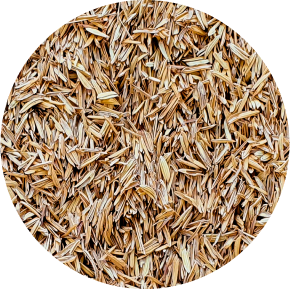
Agwaste
A paper-like pulp made from discarded agro-fibers like grass, wheat and bagasse that would otherwise have been burned or sent to a landfill. Agwaste paper is an ideal tree-free alternative for all paper-based packaging. Agwaste can also be mixed with mushroom (mycelium) material or compostable biopolymers.
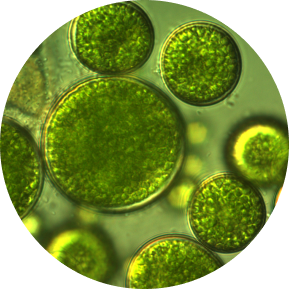
Algae
The ocean’s answer to plastic, algae is an umbrella term for a group of seaweeds and kelps that have the potential to replace fossil fuels and sequester carbon dioxide. The best applications are flexible packaging like filmedible foodware.
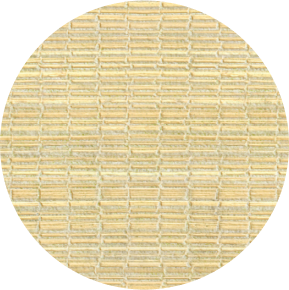
Bamboo
Bamboo is an incredibly fast-growing species of grass, making it a highly sustainable product. It’s a great tree-free replacement for plastic, paper and cotton that is perfect for to-go cups, food containers or boxes.
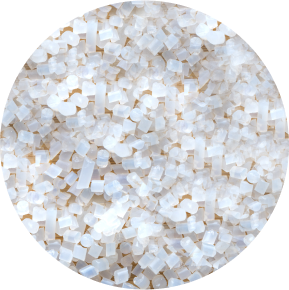
BioPBS™ (biobased polybutylene succinate)
Derived from natural resources like sugarcane, cassava and corn, BioPBS™ is a biodegradable polymer that can withstand temperatures up to 100°C, making it perfect for hot beverage cups,boxes and utensils for freshly cooked food. It is 100% biobased and certified compostable.
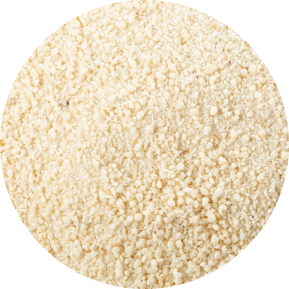
Cassava Starch
A natural starch made from cassava root and mostly derived from food industry waste or by-products, it is a fantastic alternative to conventional plastic packaging or carrier bags when mixed with the most common biopolymers
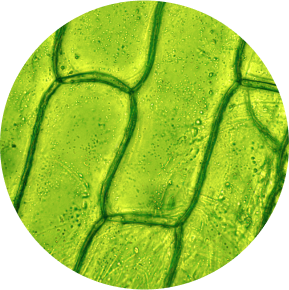
Cellulose
Cellulose is the most abundant natural polymer on earth found abundantly in plants. It’s ideally suited for food packaging because it extends the shelf life of food products by controlling the moisture content and is shelf stable.
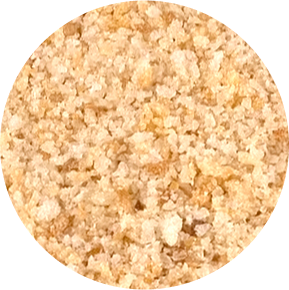
Chitosan
A natural polymer developed from crustacean waste products or fungi that is antimicrobial, making it an excellent ingredient for films or coating for the food industry as well as to make protective foam, an eco alternative to EPS (expanded polystyrene).

Coconut Fiber
A type of agwaste and a highly durable alternative to wood and plastic that is made by pressing the fibers of coconut husks to produce protective packaging, coolers, or boxes that are versatile, stronger, stiffer and lighter than plastic.

Cork
Extracted from the outer layers of the cork tree, cork is rigid, impermeable and water resistant, making it a great choice for inserts or small containers.

Cornstarch
A natural starch made from corn and mostly derived from food industry waste or by-products that is a fantastic alternative to conventional plastic packaging or carrier bags when mixed with the most common biopolymers.
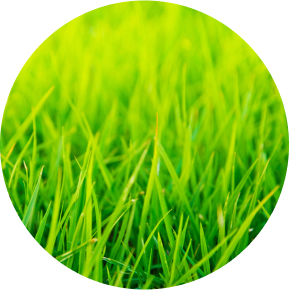
Grass
Grass can be used for natural straws as is. Different types of grass exist and the ones we use in packaging are generally by-products of agriculture waste. We can also add grass to bioploymer compounds to make rigid compostable bioplastic products.
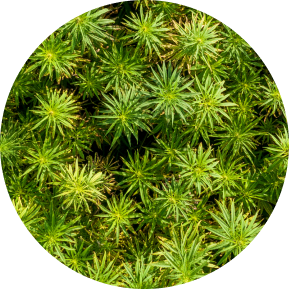
Hemp
This is another type of agwaste that is used to replace wood-based paper material.
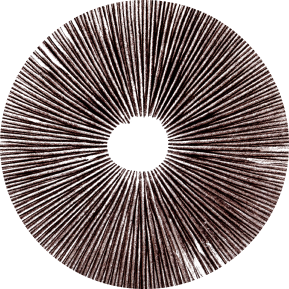
Mushroom Foam (Mycelium)
We use a mix of agwaste and fungi root structures to create a biodegradable, versatile and extremely strong packaging material that acts as an alternative to EPS (expanded polystyrene) foam because the latter is an environmental disaster that takes thousands of years to biodegrade.
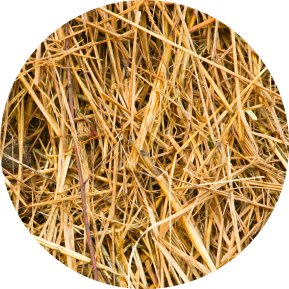
Natural Straw
An environmentally friendly alternative to plastic and a by-product of wheat production, our natural straw is great for use in food containers, plates, coffee cups and…straws!
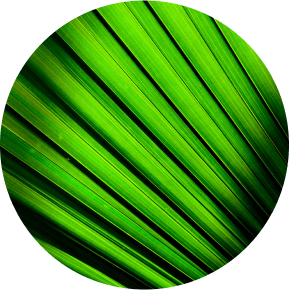
Palm Leaf
Made from fallen leaves of Areca palm trees which are then cleaned, heated and pressed so they become similar in texture and strength to wood. With no binder nor any additives, they are perfect for food grade packaging.
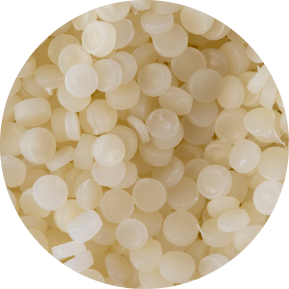
PHA (Polyhydroxyalkanoates)
A type of bioplastic made by fermenting carbon - based feedstocks that are customizable for any type of rigid plastic packaging replacements
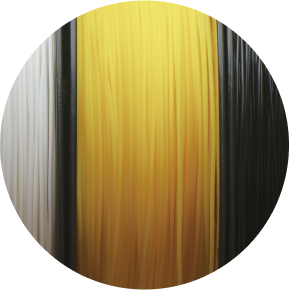
PLA (Polylactic Acid)
A 100% biobased and compostable polymer made from renewable resources designed to replace petroleum-based plastics like PET (polyethylene terephthalate) that are used in plastic films,food containers or beauty and cosmetic jars.
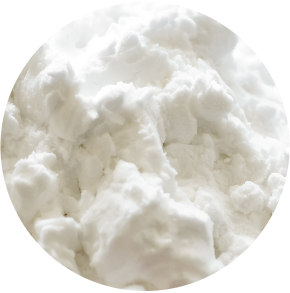
Potato Starch
A natural starch made from potato and mostly derived from the food industry waste or by-products that is a fantastic alternative to conventional plastic packaging or carrier bags when mixed with the most common biopolymers.
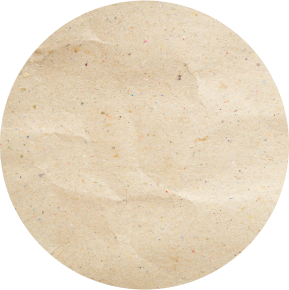
Recycled Paper
We source 100% FSC certified recycled paper in a variety of products, including mailers, cup sleeves, tubes, grocery bags, coffee trays, wrapping and more, so you can feel good about what you wrap your products. How good? For every ton of paper that’s recycled, 17 trees, 380 gallons of oil, 4,000 kilowatts of energy, three yards of landfill space, and 7,000 gallons of water are saved.

Pulp
Made from a variety of waste agro-fibre materials like recycled paper, cardboard, wood or other natural fibers, the benefit of pulp packaging is that it is formed to shape, so it can be molded into complex designs like mailers, boxes, tubes and more!
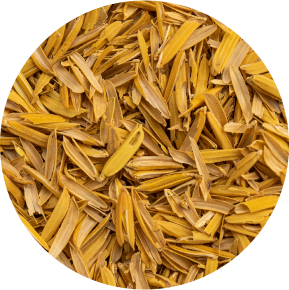
Rice Husk
This rice milling by-product is a type of agwaste that can be molded into durable food industry products like cups, to go containers, utensils and more!
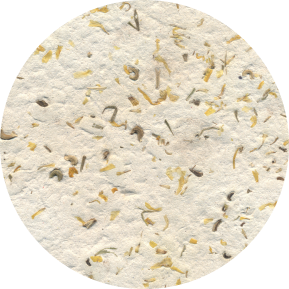
Seed Paper
A zero-waste solution made from post-consumer materials embedded with seeds for products that require traditional paper packaging like small boxes, inserts and box fillers. Naturally biodegradable in open air, consumers can even plant it and watch it grow into something that will positively impact the environment!
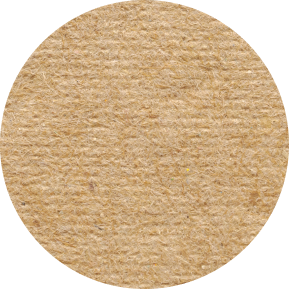
Silphie Paper
Like bamboo paper, made from a type of sunflower waste or byproduct, this paper is better for the planet than wood paper because it grows faster, requires far fewer raw materials and has a lower overall environmental impact.
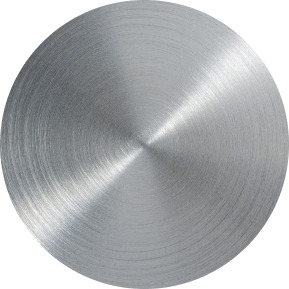
Stainless Steel
We use stainless steel for our reusable solutions because it is more durable, water-tight and easier to recycle than plastic or paper-based food containers. It also doesn't absorb bacteria or leach chemicals into your food, which is great for your customers’ health!
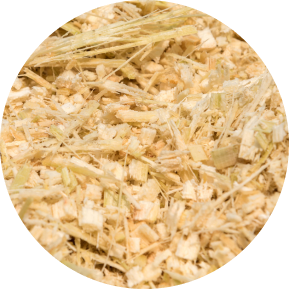
Sugarcane Bagasse
The most common type of agwaste used in food packaging, bagasse is derived from sugar industry waste. Turned into a pulp it can be used for any type of molded fiber packaging from containers to to inserts or small boxes.
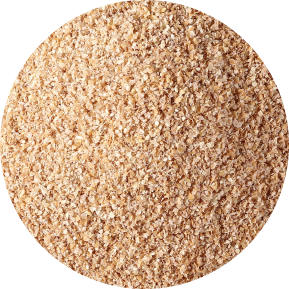
Wheat Bran
A byproduct of the milling industry, wheat bran is a biodegradable packaging solution that can be molded into disposable tableware or food-service take-away-containers. It is also commonly used in our edible packaging line to make cups and utensils.
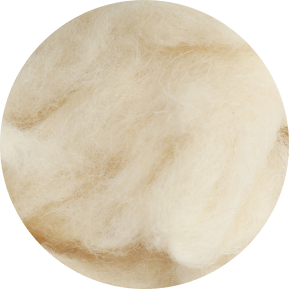
Wool Waste
You can give a second life to sheep wool waste by using it to replace any type of protective packaging , including protective sleeves or mailers when combined with recycled paper. It has excellent shock absorption properties and acts as a great natural insulating material.
